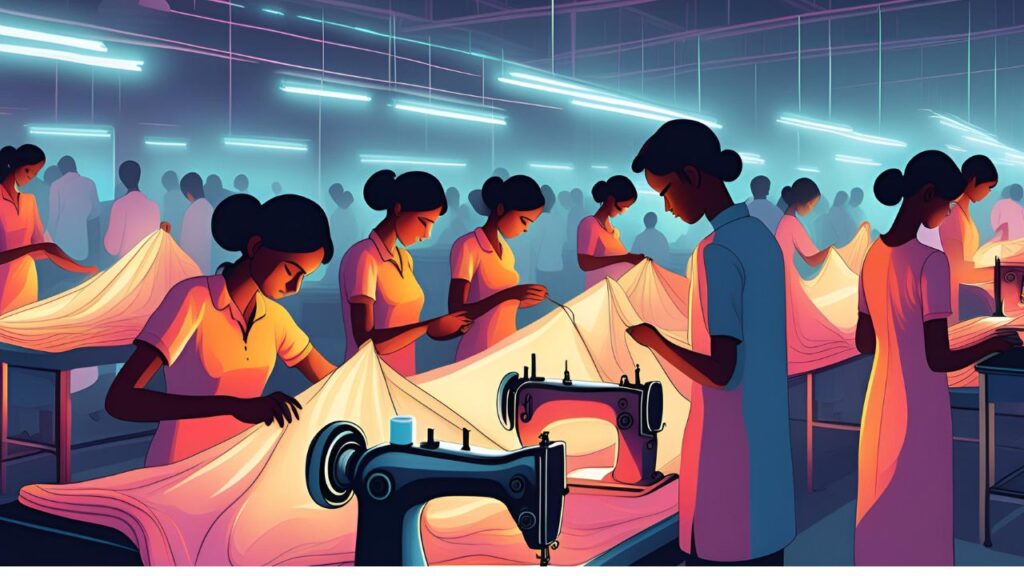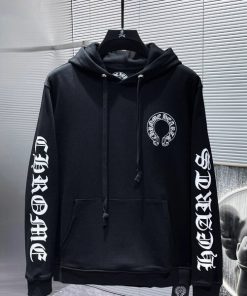
Over the last two decades, Bangladesh has transformed into a global leader in apparel manufacturing. From supplying fast fashion giants to meeting the evolving needs of premium clothing brands, Bangladesh clothing manufacturers are playing a dominant role in the international textile and garment industry.
Their ability to deliver large-scale, quality-driven, and ethically produced garments has positioned Bangladesh as a go-to destination for global sourcing. In this article, we explore the key reasons behind this dominance and what makes Bangladesh stand out in the fiercely competitive global clothing market.
A Strong Foundation in Apparel Manufacturing
The journey of Bangladesh’s garment industry began in the early 1980s. Since then, it has become one of the world’s most robust manufacturing ecosystems. Today, Bangladesh is the second-largest exporter of ready-made garments (RMG) after China, supplying apparel to over 150 countries.
This growth did not happen by chance. It is the result of strategic government policies, a skilled labor force, export incentives, and the dedication of local manufacturers to meet global standards.
Cost-Effective and Scalable Production
One of the most significant advantages of Bangladesh is its ability to produce garments at a competitive cost without compromising on quality. With lower labor costs compared to many other manufacturing countries, Bangladesh offers substantial cost savings to global buyers.
Moreover, Bangladesh clothing manufacturers have scaled their operations to handle massive volumes. Factories here can produce thousands to millions of pieces per month, allowing international brands to meet their seasonal demands efficiently.
Skilled Workforce and Industry Expertise
The garment sector in Bangladesh employs over four million people, the majority of whom are women. These workers are highly skilled in cutting, sewing, embroidery, pattern-making, and finishing. The workforce is trained to deliver precision even in complex fashion designs and delicate fabric treatments.
Many factories also invest in continuous training and development to keep their teams updated with modern techniques, ensuring the consistent delivery of export-quality garments.
Investment in Modern Technology
To stay globally competitive, manufacturers in Bangladesh have adopted advanced production technologies. From CAD-based pattern development to automated cutting systems and digital printing, factories are embracing innovation.
This tech-driven approach not only improves production efficiency but also enhances accuracy in sizing, fabric usage, and overall garment quality. Many leading manufacturers operate vertically integrated facilities that include spinning, dyeing, stitching, and finishing under one roof.
Commitment to Global Compliance and Certifications
International buyers today expect their suppliers to follow ethical and sustainable practices. Bangladesh clothing manufacturers have responded by aligning with recognized global compliance frameworks such as:
- WRAP (Worldwide Responsible Accredited Production)
- BSCI (Business Social Compliance Initiative)
- SEDEX
- OEKO-TEX® for chemical safety
- ISO certifications for quality management
These certifications ensure that factories meet labor safety laws, minimize environmental impact, and produce garments using non-toxic, sustainable materials.
One Keyword Link Integration
With a combination of affordability, scalability, ethical standards, and design versatility, Bangladesh clothing manufacturers have become a top choice for fashion brands worldwide. Their ability to offer full-package solutions makes them indispensable to today’s fast-paced apparel supply chain.
Sustainability and Green Manufacturing Initiatives
Sustainability is no longer an option—it’s a necessity. Bangladesh is home to the highest number of LEED-certified green garment factories in the world. Manufacturers are actively investing in:
- Energy-efficient machinery
- Rainwater harvesting systems
- Solar-powered production
- Recyclable and biodegradable packaging
- Waste and carbon footprint reduction
These initiatives help global brands align with their environmental goals while ensuring consumers receive ethically produced fashion.
Vertical Integration and Full-Service Capabilities
Many of the top clothing manufacturers in Bangladesh operate vertically integrated facilities. This means they control the entire production process, including:
- Yarn spinning
- Fabric dyeing and finishing
- Garment cutting and stitching
- Printing and embroidery
- Quality inspection and packaging
Vertical integration allows for better quality control, faster turnaround times, and smoother communication throughout the production cycle.
Diverse Product Range and Market Reach
From high-street fashion and corporate uniforms to activewear and sustainable collections, Bangladesh’s garment sector produces it all. The diversity in product offerings allows the country to serve different segments of the global fashion industry.
Manufacturers supply to leading retailers, wholesalers, and online brands in the USA, UK, Germany, France, Italy, Canada, Australia, Japan, and the Middle East. This global reach reinforces the country’s dominance in apparel manufacturing.
Strong Government and Policy Support
The Bangladeshi government recognizes the importance of the RMG sector and has implemented various initiatives to support its growth. These include:
- Tax incentives for exporters
- Duty-free import of raw materials
- Export processing zones (EPZs)
- Infrastructure improvements for ports and logistics
- Skill development programs for workers
Such policies help manufacturers reduce operational costs and deliver greater value to international buyers.
Focus on Ethical Labor Practices
Bangladesh’s garment industry has made significant strides in improving working conditions. Most leading factories comply with local labor laws, provide fair wages, and ensure safe working environments.
Increased transparency, worker welfare programs, and third-party audits have contributed to an overall shift toward ethical sourcing. Global fashion brands view this as a critical component when selecting manufacturing partners.
Digitalization and Future-Readiness
As global fashion trends change rapidly, Bangladeshi manufacturers are embracing digital tools for faster decision-making and product development. Many use ERP systems, cloud-based inventory management, and AI-powered demand forecasting to improve operational efficiency.
By staying ahead of technological changes, Bangladesh clothing manufacturers are preparing for the future of fashion production, including on-demand manufacturing and virtual sampling.
Why Global Brands Continue to Choose Bangladesh
The ongoing loyalty of global brands to Bangladeshi manufacturers can be attributed to several core factors:
- High-volume production capacity
- Reliable lead times and on-time delivery
- Strong compliance with international labor and environmental standards
- Comprehensive services from concept to export
- Value-driven partnerships that support brand growth
Buyers know they can depend on Bangladesh not just for product quality, but for partnership integrity and long-term success.
Conclusion
Bangladesh has risen to the top of the global garment manufacturing map by blending affordability with professionalism, ethics with innovation, and quality with scale. Its manufacturers are no longer seen just as suppliers, but as strategic partners that help fashion brands thrive in a demanding global marketplace.
Among these top-performing manufacturers, Posh Garments continues to lead with its focus on quality, sustainability, and customer satisfaction. With decades of experience and a forward-thinking approach, Posh Garments is a name global brands can trust when looking to collaborate with the best in Bangladesh.






